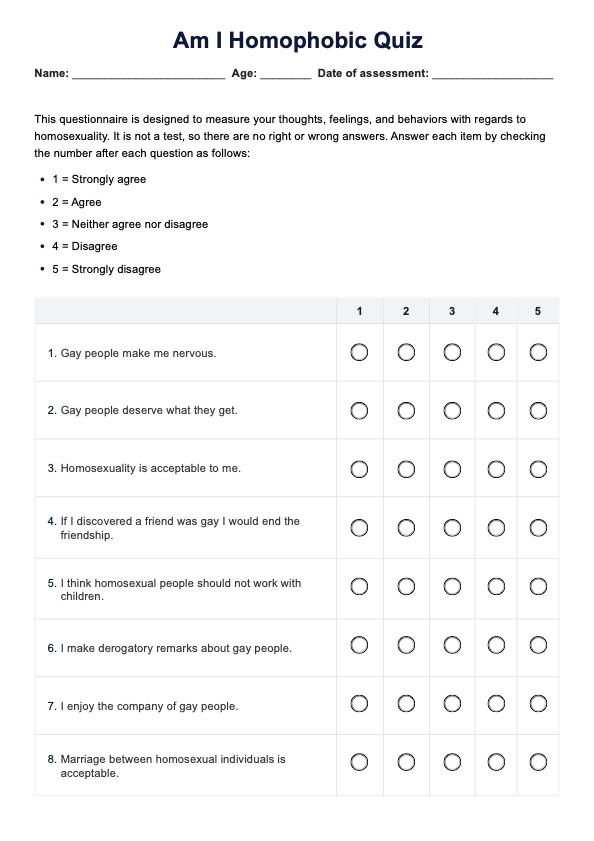Deep questions for LGBTQ individuals might include: "How has your sexual orientation or gender identity shaped your sense of self" and "What challenges have you faced in finding acceptance within your community or family"

Am I Homophobic Quiz
Explore the Am I Homophobic Quiz as a tool to help clients gauge their attitudes and beliefs towards the LGBTQ+ community.
Am I Homophobic Quiz Template
Commonly asked questions
The word "homophobia" was first coined in the late 1960s by psychologist George Weinberg, combining "homo" (from "homosexual") with "phobia" (meaning irrational fear) to describe the irrational fear, hatred, or discomfort toward homosexual people.
Homosexuality refers to the romantic or sexual attraction between individuals of the same sex or gender. It is a natural variation of human sexuality, present across different cultures and societies throughout history.
EHR and practice management software
Get started for free
*No credit card required
Free
$0/usd
Unlimited clients
Telehealth
1GB of storage
Client portal text
Automated billing and online payments











